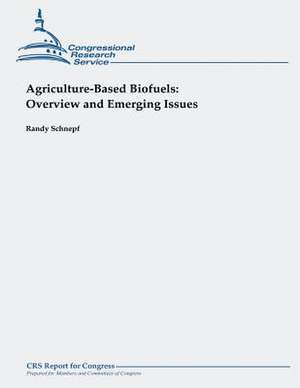Agriculture-Based Biofuels
Autor Randy Schnepfen Limba Engleză Paperback
Preț: 89.13 lei
Nou
Puncte Express: 134
Preț estimativ în valută:
17.05€ • 18.58$ • 14.37£
17.05€ • 18.58$ • 14.37£
Carte disponibilă
Livrare economică 02-16 aprilie
Preluare comenzi: 021 569.72.76
Specificații
ISBN-13: 9781490945705
ISBN-10: 1490945709
Pagini: 48
Dimensiuni: 216 x 280 x 3 mm
Greutate: 0.14 kg
Editura: CREATESPACE
ISBN-10: 1490945709
Pagini: 48
Dimensiuni: 216 x 280 x 3 mm
Greutate: 0.14 kg
Editura: CREATESPACE
